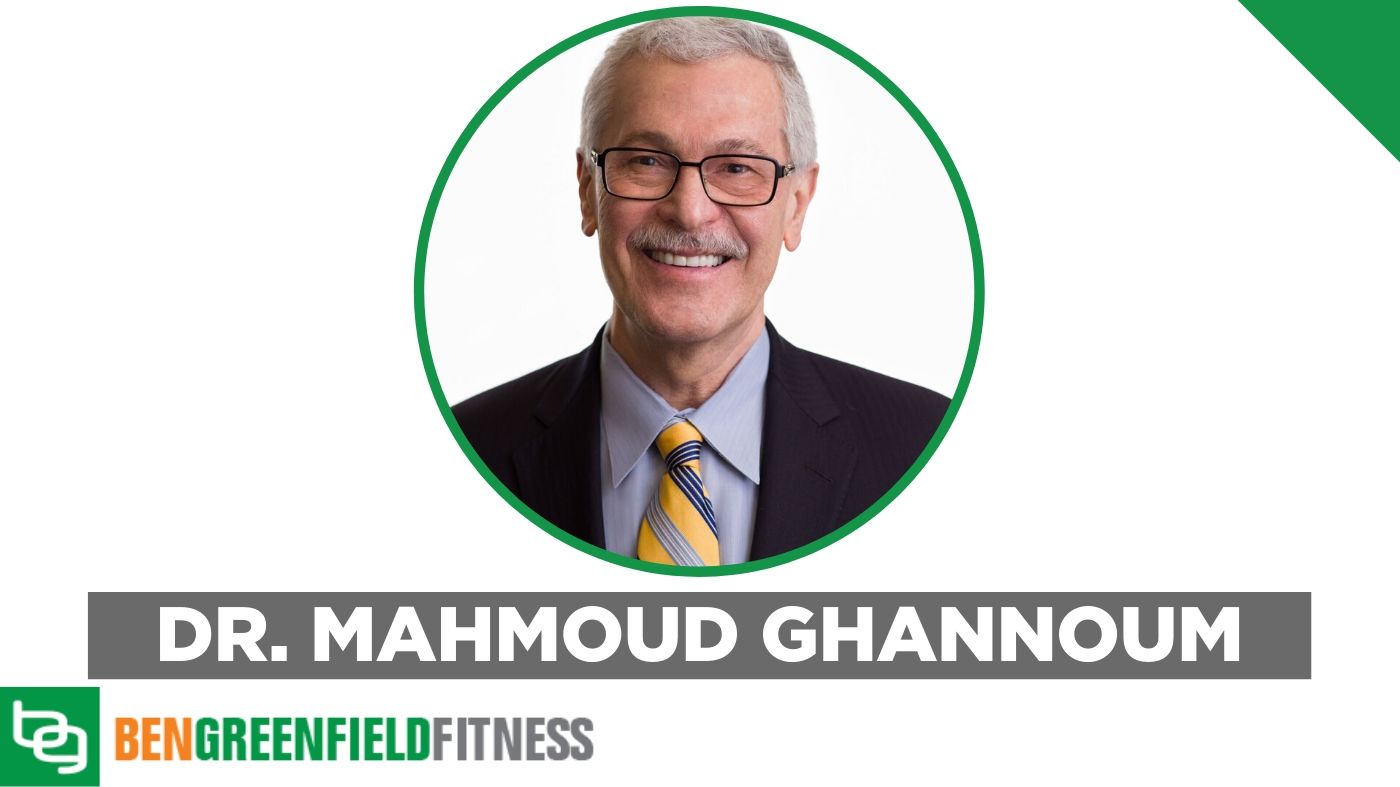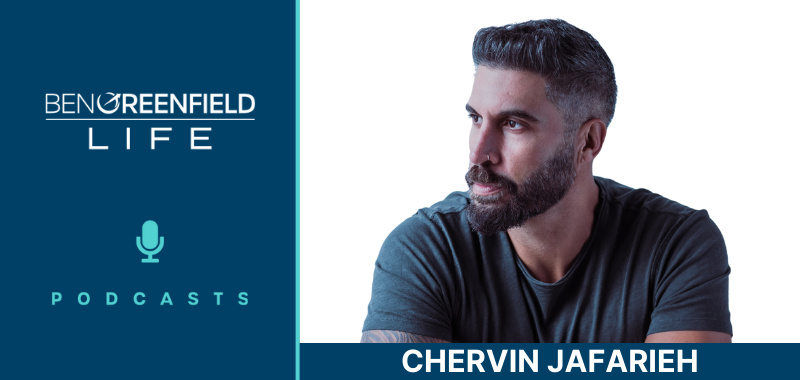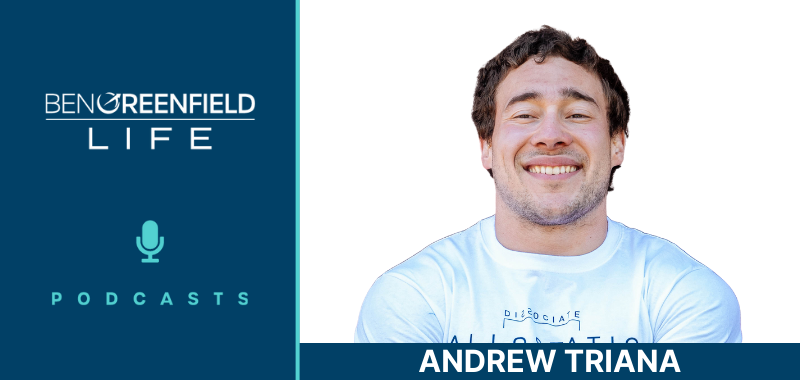January 11, 2020
Most people understand the importance of a healthy gut microbiome for digestive health and overall wellbeing. But what about the mycobiome―the fungi that live inside our bodies? This podcast introduces this important component of the microbiome and explains how diet affects this population and how its balance or imbalance can make you feel. A poor balance of fungi can lead to weight gain, pain, bloating, low energy, and can even worsen symptoms for those with IBS or Crohn’s.
Good news: Gut fungi respond quickly and dramatically to dietary and lifestyle changes. Within 24 hours, you can remake your mycobiome—supporting a path to weight loss, better digestion, and more energy. Alongside this accessible gut science, my guest, Dr. Mahmoud Ghannoum, author of the new book “Total Gut Balance: Fix Your Mycobiome Fast for Complete Digestive Wellness” outlines fast changes for fostering healthy fungi. In it, you'll discover 7- and 20-day diet plans—with more than 50 dietician-tested recipes—to cultivate a thriving mycobiome as well as methods for tweaking your lifestyle for long-term gut health.
Dr. Ghannoum is a tenured professor and director of the Center for Medical Mycology at Case Western Reserve University and University Hospitals Cleveland Medical Center in Cleveland, Ohio. Educated in Lebanon, England and the United States, he received his PhD in microbial physiology from the University of Technology in England and an Executive MBA from the Weatherhead School of Management at Case Western Reserve University. He has spent his entire career studying medically important fungi and publish-ing extensively about their virulence factors, especially in microbial biofilms.
Over the past decade, Dr. Ghannoum recognized the role of the microbial community (both bacterial and fungal) in human health and published the first study describing the oral fungal community, coining the term “mycobiome.” He described the bacterial microbiome (bacteriome) and the mycobiome in HIV-infected patients and led the characterization of the interaction between bacteria and fungi as they relate to health and disease. In 2016, he published an opinion piece in The Scientist on the contribution of the mycobiome to human health and was consequently invited to speak at a number of meetings organized by the National Institutes of Health. He conducted a study characterizing the bacterial and fungal communities in Crohn’s disease patients that resulted in the first model of microbiome dysbiosis that implicated cooperation between bacteria and fungi in biofilms. This work resulted in a publication that received national and international coverage.
Dr. Ghannoum is also a fellow of the Infectious Disease Society of America and a past president of the Medical Mycological Society of the Americas (MMSA). He has received many distinguished awards for his research, and in 2013, he was selected as “Most Interesting Person” by Cleveland Magazine. In 2016, he received the Rhoda Benham Award presented for his continuous outstanding and meritorious contributions to medical mycology from the Medical Mycological Society of the Americas and the Freedom to Discover Award from Bristol-Myers Squibb for his work on microbial biofilms. In 2017, he was inducted as a fellow of the American Academy of Microbiology. He continues to be a pioneer in the characterization of the human microbiome.
With over 400 peer-reviewed publications to his credit and six published books on antifungal therapy, microbial biofilms, Candida adherence, and related topics, Dr. Ghannoum continues to be a prominent leader in his field. The National Institutes of Health has continually funded his research since 1994, and he recently received a large NIH grant to study the mechanisms of bacterial/fungal interaction in intestinal inflammation, such as in colitis and Crohn’s disease. He has also consulted for many international pharmaceutical and biotech companies and co-founded multiple successful and profitable companies, including BIOHM Health, launched in 2016, that engineer products and services to address the critical role of the bacterial and fungal communities in digestive and overall health and wellness. BIOHM Health was just awarded the Science and Innovation Award by Nutrition Business Journal. Dr. Ghannoum lives in Cleveland with his wife, children, and grandchildren.
During this discussion, you'll discover:
-The story behind Dr. Ghannoum coining the term “mycobiome”…7:40
- Mycology is the study of fungi; mycobiome refers to the fungi in our gut and parts of our body
- Focusing just on bacteria leads to overgrowth of candida
- Showed through research that over 100 fungal species exist in a typical human mouth
-Why the human body benefits from having fungus inside it…10:15
- We need fungi in our gut; good fungi, even candida in low doses, helps the body
- Helps in breaking down, fermenting food
- Candida or fungi at colonizer level cleans the immune system
- Gut Report to test fungus levels in the body
- Other microbiome tests examine the bacteria only
- biohmhealth.com
-What good and bad fungi are…14:18
- It varies by the species
- Saccharomyces boulardii and Pichia are good all the way around
- The level of candida is the determining factor, good or bad
- There are different strains of candida
-Signs and symptoms of a fungal overgrowth…18:32
- Diarrhea
- Allergies
- Pain in the GI tract
- Damage to gut lining results
-How biofilms protect the gut…21:38
- Candida cooperates w/ E. coli and Serratia Marcescens (both pathogens) to make a biofilm
- Plaque on teeth is an example of a biofilm
- Organisms in the gut are not free-floating; they stick to the gut
- Complex polysaccharides form around organisms; shields from drugs or immune cells
- Biofilms are resistant to being broken down
- Echinocandins inhibit the synthesis of the fungal cell wall:
- Caspofungin
- Micafungin
- Anidulafungin
-How people get fungal infections…29:00
- Immunocompromised patients typically have lots of antibiotics (killing useful bacteria and allowing candida overgrowth)
- Goes through GI tract and attacks blood
- Nurses and doctors are carriers
- Surgery
- Steroids exacerbate susceptibility to candida infections
-Differences and similarities between SIFO and SIBO…35:40
- Similar symptoms
- Nausea is more prevalent and severe in SIFO patients
- Abdominal pain and gas is more prevalent in SIBO
- SIFO patients grow candida
- 19% of patients can have both SIBO and SIFO
-How popular diets may contribute to fungal overgrowth…39:05
- Mediterranean diet:
- Lots of grains, carbs, pasta (can encourage growth of candida)
- Follow the diet, provided you consume alcohol in moderation (sugars are problematic)
- Paleo diet may contain too little prebiotic content
- Mycobiome diet is customizable to the individual
-What life looks like on the mycobiome diet…46:10
- Goal is to limit growth of candida, and pro-inflammatory bacteria
- People low in Vitamins A, B, C are vulnerable
- Encourage beneficial bacteria (fibers, resistance starches)
- Stop biofilms (harming gut lining and causing inflammation)
- Cruciferous veggies are anti-inflammatory and antioxidant
- The best food can still result in imbalance in the gut
- Lifestyle factors:
- Exercise, walk, hike, etc.
- Blood can divert from the heart, lungs during extreme exercise
- No full-fat dairy
- Herbs and spices that are particularly efficacious:
- Supplements
- Sample breakfast:
- Sample lunch:
- Lentil soup, spring onions, lemon, chicken
- Salad w/ cucumber, spring onion, garlic, lettuce, salmon
- Pistachios are great for the biome
- Sample dinner:
- Asparagus, cauliflower, Brussels sprouts
- Chicken roasted, fish
-How to find a physician who is knowledgeable in treating SIFO…1:05:11
-And much more…
Click here for the full written transcript of this podcast episode.
Resources from this episode:
– Book: Total Gut Balance: Fix Your Mycobiome Fast for Complete Digestive Wellness
– Great Lakes Pharmaceuticals B-Lock for biofilms
Episode sponsors:
-Boundless: Click here to pre-order Ben Greenfield's new book “Boundless”. And click here for info regarding the book launches coming up in NYC and Los Angeles!
–Kion Aminos: Building blocks for muscle recovery, reduced cravings, better cognition, immunity, and more. Get 10% off your order of Kion Aminos, and everything at the Kion site when you use discount code: BGF10 at checkout.
–X3 Bar: Grow muscle 3x faster than you can with free weights! The X3 Bar will change the way you train forever. Get a $50 discount off your X3 bar when you use discount code: BEN
–Comrad Socks: Seriously comfortable compression socks designed to support your every move. Receive 20% off your Comrad purchase when you use discount code: KION
–ButcherBox: Delivers healthy 100% grass-fed and finished beef, free-range organic chicken, and heritage breed pork directly to your door on a monthly basis. All their products are humanely raised and NEVER given antibiotics or hormones. For 2 lbs of 100% grass-fed beef and 2 lbs of pure bacon for FREE, PLUS $20 off your first box go to ButcherBox.com/BEN.














I had to stop eating anything with yeast in it. It causes my hair to come out. What can I do to get my hair to grow back? I also have to wash it with tea tree every week or it will come out. I also have toenail fungus. Can’t seem to get rid of it. I am following low carb. No sugar in my diet except bananas sometimes and pomegranates.
Hey Ben….Great Interview…..What do you know about Auto-Brewery Syndrome? My understanding is that even beneficial yeast like Dr Ghannoum mentioned can lead to overgrowth and this condition. Where you are basically brewing your own alcohol in your gut. Leading all sorts of poor health outcomes, like beriberi and non alcoholic fatty liver disease. There is a website now for it…
auto-brewerysyndrome.org .
I’m also curious what you think about therapeutic mushrooms like Reishi, Turkey tail, chaga , etc and their effectiveness on micro and myco biome health issues.
Thanks Ben
Mike
Has anyone tried Plexus?
It would be really helpful to hear from an immunity expert who can explain why some people are more prone to chronic viral, bacterial and fungal infections, and then how to fix a broken immune system. I suspect there are a lot of people with “compromised” immune systems not because of these infections but because of inherent issues with IgM, IgA, etc.
You interviewed Ian Clark awhile ago and you talked about a product that kills the fungus that causes foot fungus. Do yo have any updates on that now?
Great info on biopilms with the gynostemma leaf don’t remember where i heard but a tea like spring dragon tea from dragonherbs.com sells this tea, it does so because it has a soap quality to the tea so it gives your insides a bath like effect due to the saponins that the leaf creates.
Do coffee enemas affect the microbiome?